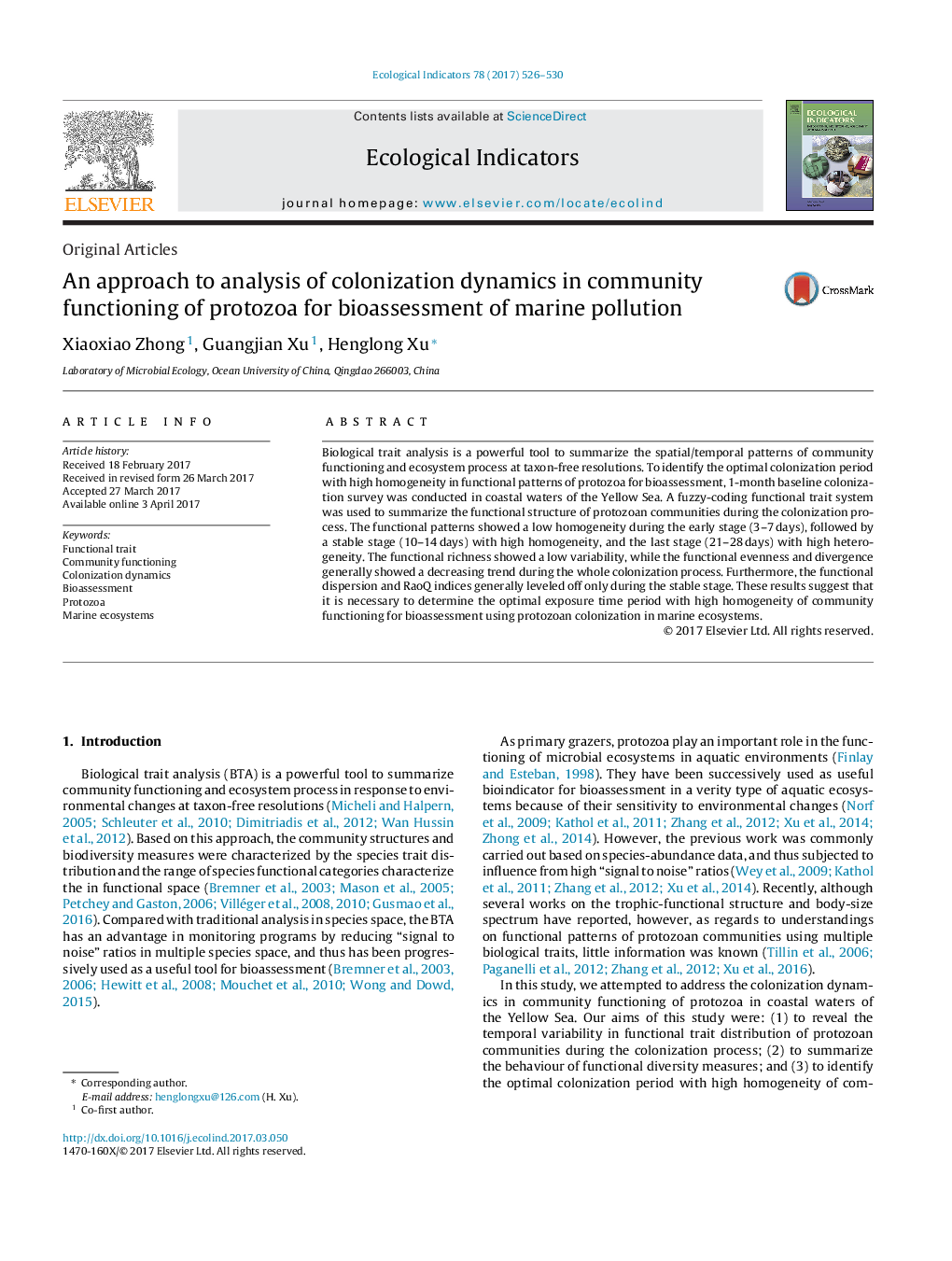| Article ID | Journal | Published Year | Pages | File Type |
|---|---|---|---|---|
| 5741658 | Ecological Indicators | 2017 | 5 Pages |
Biological trait analysis is a powerful tool to summarize the spatial/temporal patterns of community functioning and ecosystem process at taxon-free resolutions. To identify the optimal colonization period with high homogeneity in functional patterns of protozoa for bioassessment, 1-month baseline colonization survey was conducted in coastal waters of the Yellow Sea. A fuzzy-coding functional trait system was used to summarize the functional structure of protozoan communities during the colonization process. The functional patterns showed a low homogeneity during the early stage (3-7Â days), followed by a stable stage (10-14Â days) with high homogeneity, and the last stage (21-28Â days) with high heterogeneity. The functional richness showed a low variability, while the functional evenness and divergence generally showed a decreasing trend during the whole colonization process. Furthermore, the functional dispersion and RaoQ indices generally leveled off only during the stable stage. These results suggest that it is necessary to determine the optimal exposure time period with high homogeneity of community functioning for bioassessment using protozoan colonization in marine ecosystems.
